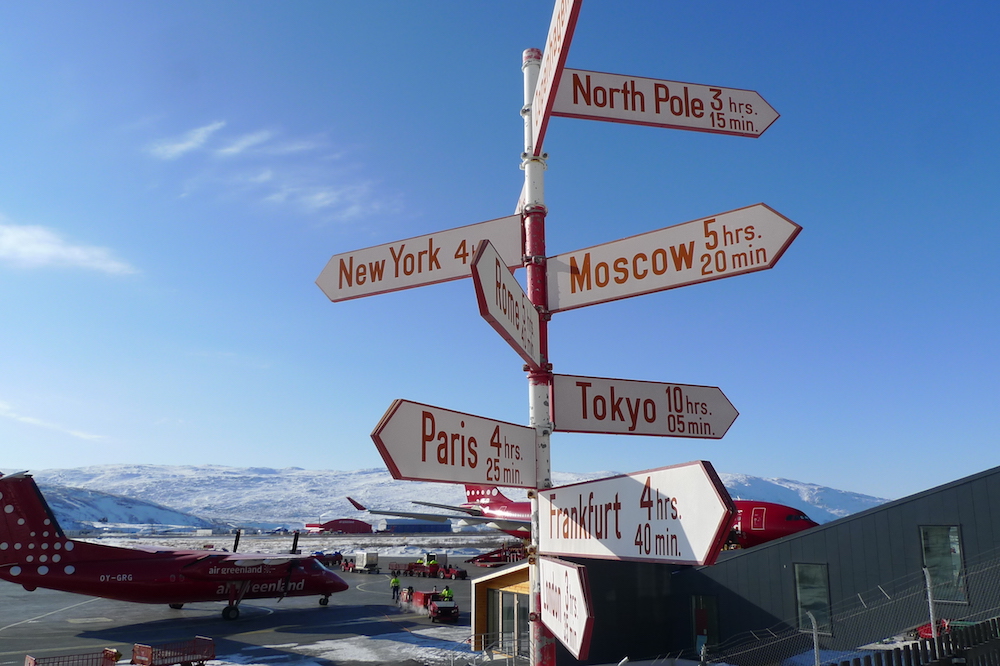Greenland is high on the agenda as Denmark’s new foreign minister makes his first DC visit
Ane Lone Bagger, Greenland’s foreign affairs minister, is accompanying Danish Foreign Minister Jeppe Kofod to Washington.

In Denmark, there are two unwritten rules that new foreign ministers are wise to keep in mind. The first is to make it a point to call on Washington to formally introduce themselves to America’s secretary of state.
Copenhagen considers Washington one of its closest allies, and the visits, according to Jeppe Kofod, making the trip Wednesday after being installed in the office in June, signify the importance Copenhagen places on the relationship.
Unlike his predecessors, however, Kofod wasn’t alone when he arrived at Foggy Bottom to present himself. Instead, he was accompanied by Ane Lone Bagger, Greenland’s minister of foreign affairs.
Meeting between Greenland’s Minister of Foreign Affairs, Ane Lone Bagger, Danish Foreign Minister Jeppe Kofoed and Secretary of State, Mike Pompeo in Washington, D.C to discuss issues of common interest pic.twitter.com/mdM1gFoThO
— Greenland in USA&CDA?? (@GreenlandRepDC) November 13, 2019
The reason for this is the second rule: Danish foreign policy discussions about Greenland or the Arctic must involve a representative from Nuuk. Today’s meeting, according to the foreign ministry, was to address America’s role in the region, alongside issues such as Syria and Afghanistan.
[Greenland isn’t for sale — but it is for lease]
Greenland had already been high on the agenda of Danish-American issues even before Donald Trump offered to buy the country from Copenhagen this August. Secretary of State Mike Pompeo, who Kofod and Bagger met today, had been due to visit Greenland in May, but was forced to cancel amidst escalating tensions with Iran.
And while the president cancelled his own official visit to Copenhagen in displeasure over the Danish and Greenlandic reactions to his offer, a parade of high-level officials, including T Ulrich Brechbuhl, one of Pompeo’s closest lieutenants, have called on Greenland in recent weeks. More can be expected: Next year, the embassy in Copenhagen hopes to open a consulate in Nuuk, and one of the post’s duties will be to facilitate these types of visits.
America’s interest in Greenland comes as Washington becomes increasingly aware of the region’s growing commercial and strategic importance. The uptick in involvement, according to Kofod, is welcome in Copenhagen — but only if it takes Greenland’s interests into account.
“Our main message is that more American involvement should benefit the people of Greenland,” Kofod said in a statement.
[Pompeo: Russia is ‘aggressive’ in Arctic, China’s work there also needs watching]
Another message Kofod will seek to deliver is that Nuuk is closely aligned with Copenhagen when it comes to making foreign-policy decisions. Kofod has pledged to integrate Nuuk even more closely into the foreign-policy decision-making process, and, prior to leaving for America, he suggested that working more closely with Bagger might be one way to do this. Just how that will happen remains unclear, and, indeed, granting more authority to Nuuk than it already has could be unconstitutional.
For the time being, though, appearances, rather than results, may be just as important for Kofod: On Tuesday, Danish media reported that a falsified letter casting doubt on the health of Copenhagen-Nuuk relations and apparently signed by Bagger, had been sent to the U.S. senator who claims to have given Trump the idea of buying Greenland.
By inviting Greenland’s foreign affairs minister to the State Department, Kofod is showing the folks back home in Denmark that he understands the unwritten rules. But for his American hosts, the joint Greenland-Denmark delegation is meant to signal that there is no divide between the two.